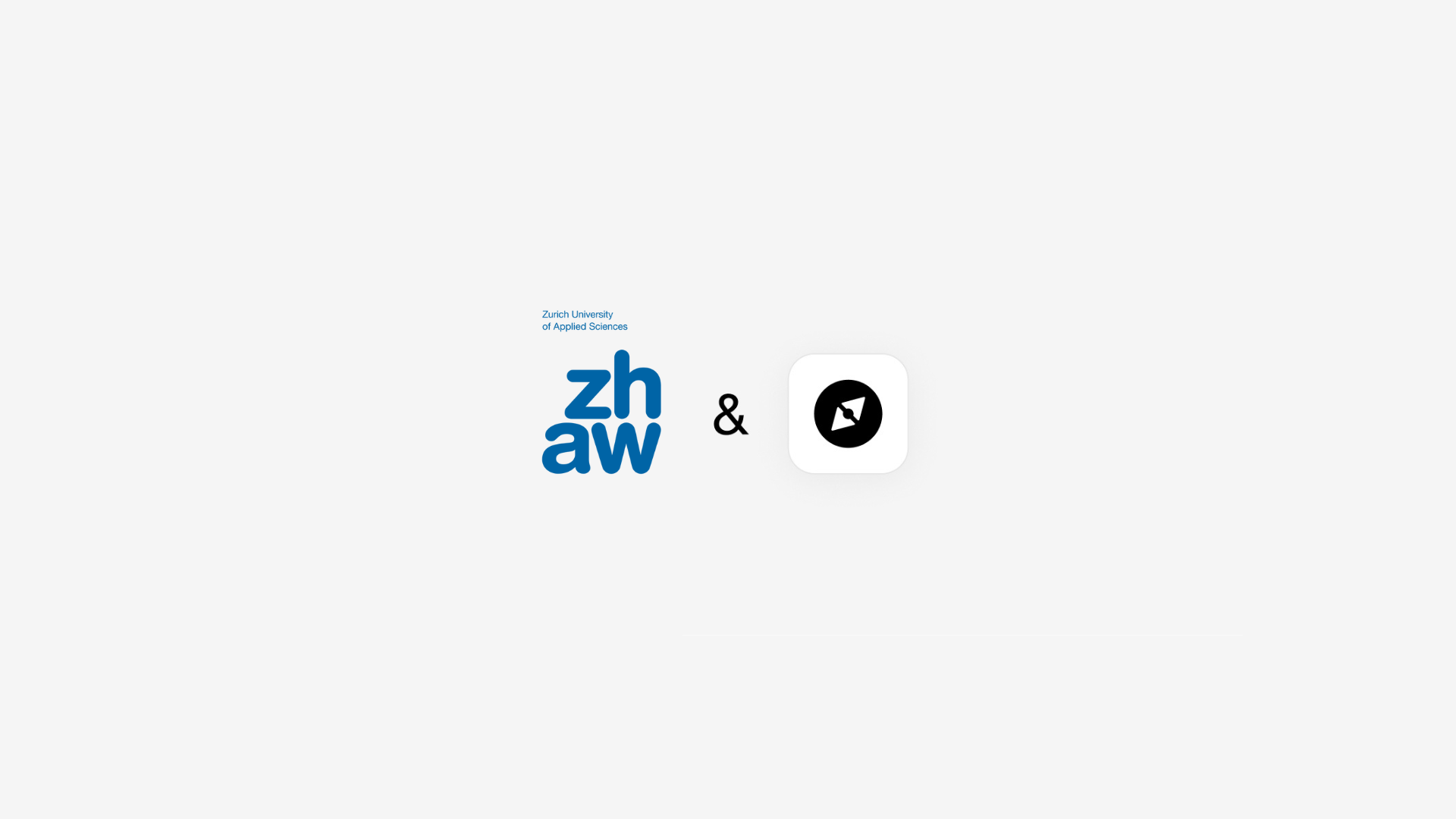Case Study #3: Reflection for Learning Enhancement
Bringing Reflection Into Professional Education: How ZHAW Uses Rflect to Support Working Students
Introduction
How do we ensure that students don’t just go through the motions of higher education but actively engage with their learning? This is a question that many institutions are asking, including ZHAW - Zurich University of Applied Sciences, which provides, amongst others, education programs tailored to adult learners who are also working professionals.
ZHAW runs many Certificate of Advanced Studies - also known as CAS. Within the Corporate Finance CAS, Professor Beat Affolter has been exploring ways to help students connect theoretical knowledge with personal growth and real-world application. One of the key tools they’ve introduced to support this process is Rflect, our platform designed to cultivate structured reflection and empower students to take ownership of their learning journey.
Our work with Beat and ZHAW is now in its second year, and the adjustments made after the pilot run of 2023-2024 have shown that integrating continuous reflection into the curriculum can truly make a difference. Students are developing a deeper understanding of their competencies, recognising how their experiences shape their learning, and gaining valuable insights into their personal and professional growth. Meanwhile, for professors like Beat Affolter, it is also a novel way to engage with students, as it helps them track progress and support individual development in a meaningful way.
Here are some highlights from a recent interview we recorded with Beat about how reflection is transforming the learning experience at his CAS at ZHAW.

Beat Affolter is a professor of Corporate Finance at Zurich University of Applied Sciences (ZHAW).
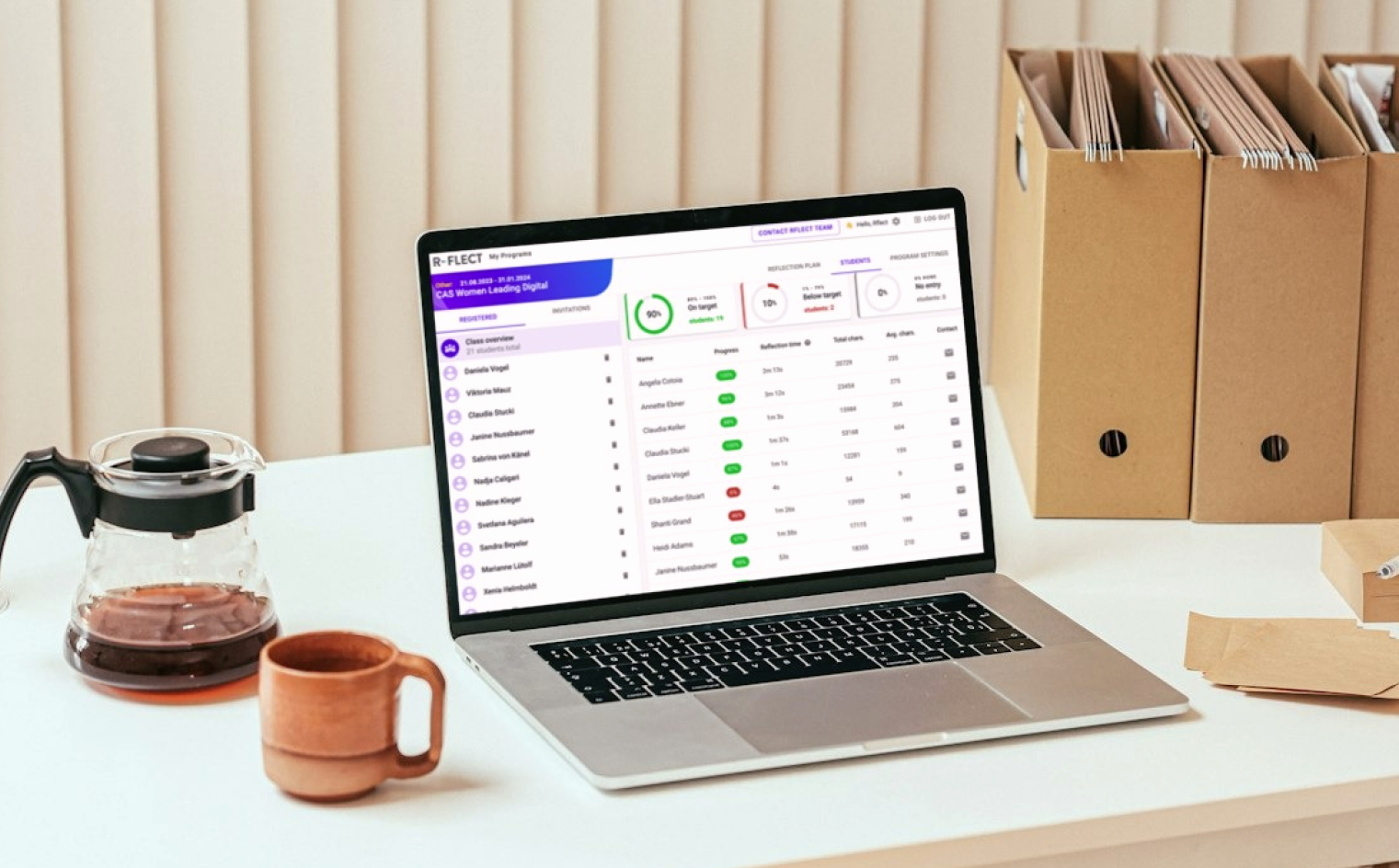
Before Rflect, we didn’t have any formal focus on personal development. I’ve always known that reflection plays a key role in the learning process and in promoting practical competencies, so I always made sure my students and I spent some time talking about how to apply the concepts they’d learnt in real life. However, without a proper tool or process, it sometimes felt overwhelming to them, like they were suddenly thrown into the cold water and left to figure out how to swim.
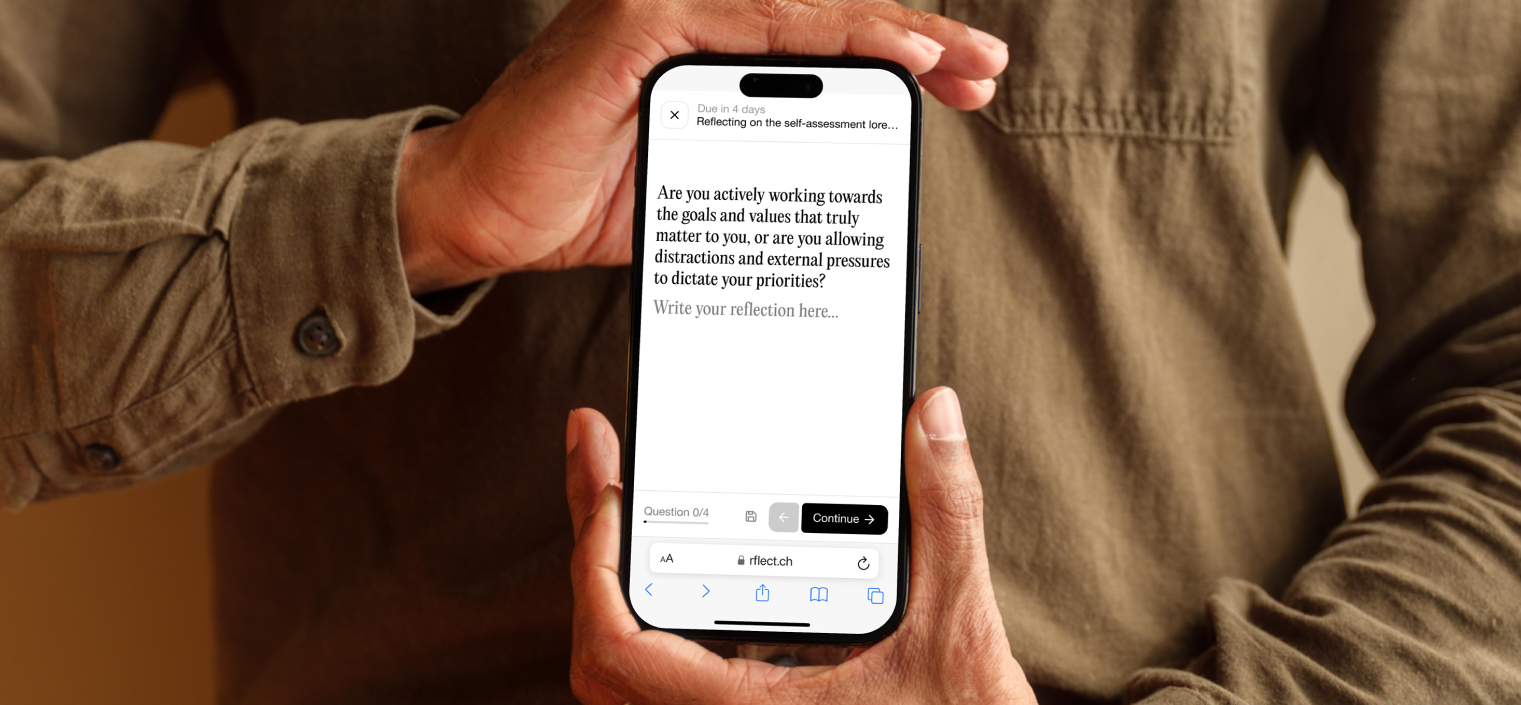
Now, as we tackle these issues throughout the program, I can see an increment in my students’ awareness and confidence levels. They’re empowered and more competent, able to take on more responsibilities. Most importantly, reflecting on something at the end of the year doesn’t allow you to act on what you’ve come to learn. You can look at things with hindsight and take note for the next time, but it’s too late to react and adjust. Now students get to react and adjust in real time.
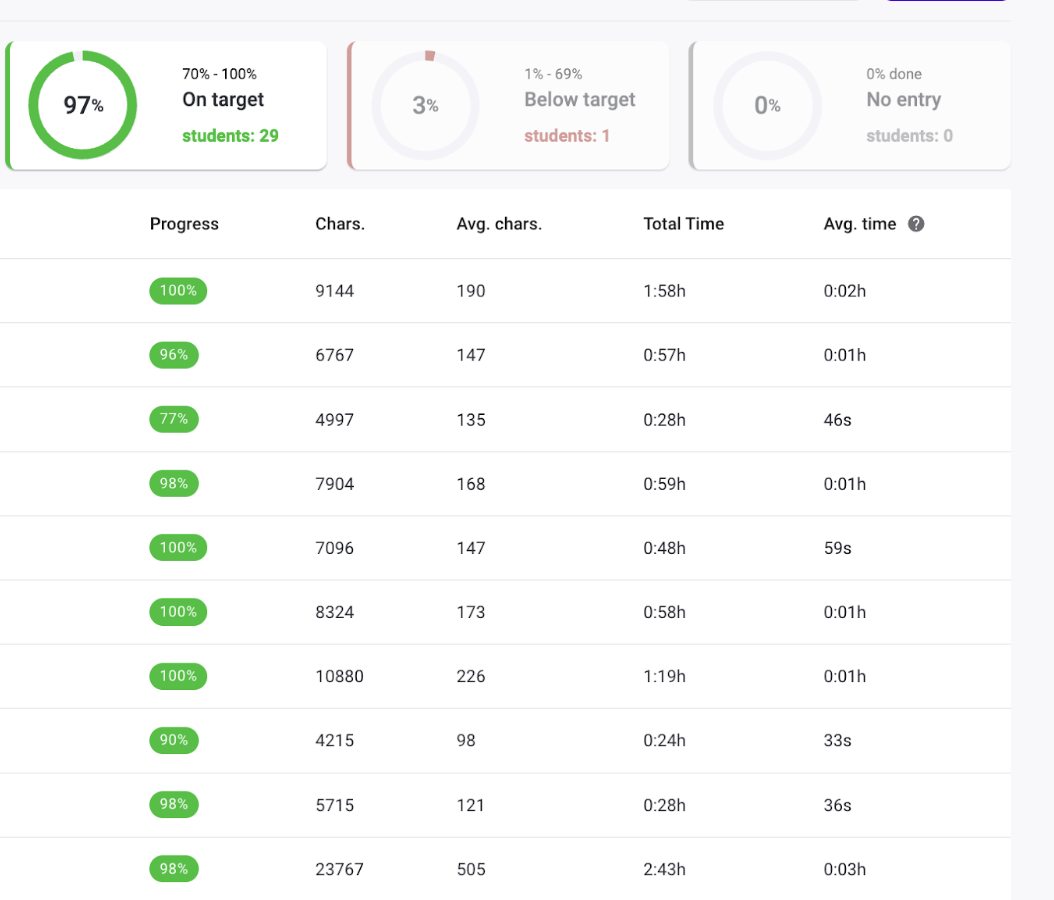 I also have the opportunity to react to what my students tell me through Rflect. I have a better understanding of where the group stands and how they feel. Vocal students might come to you and tell you something openly, with or without a tool for reflection. However, the majority of people might not be so easy to read, and Rflect allows me to reach them. I like to add a dedicated question in the reflection, like: “Is there anything you would like to share with me?” and students really respond to that. It’s not just continuous reflection for the students, it’s also continuous contact between me and them.
I also have the opportunity to react to what my students tell me through Rflect. I have a better understanding of where the group stands and how they feel. Vocal students might come to you and tell you something openly, with or without a tool for reflection. However, the majority of people might not be so easy to read, and Rflect allows me to reach them. I like to add a dedicated question in the reflection, like: “Is there anything you would like to share with me?” and students really respond to that. It’s not just continuous reflection for the students, it’s also continuous contact between me and them.
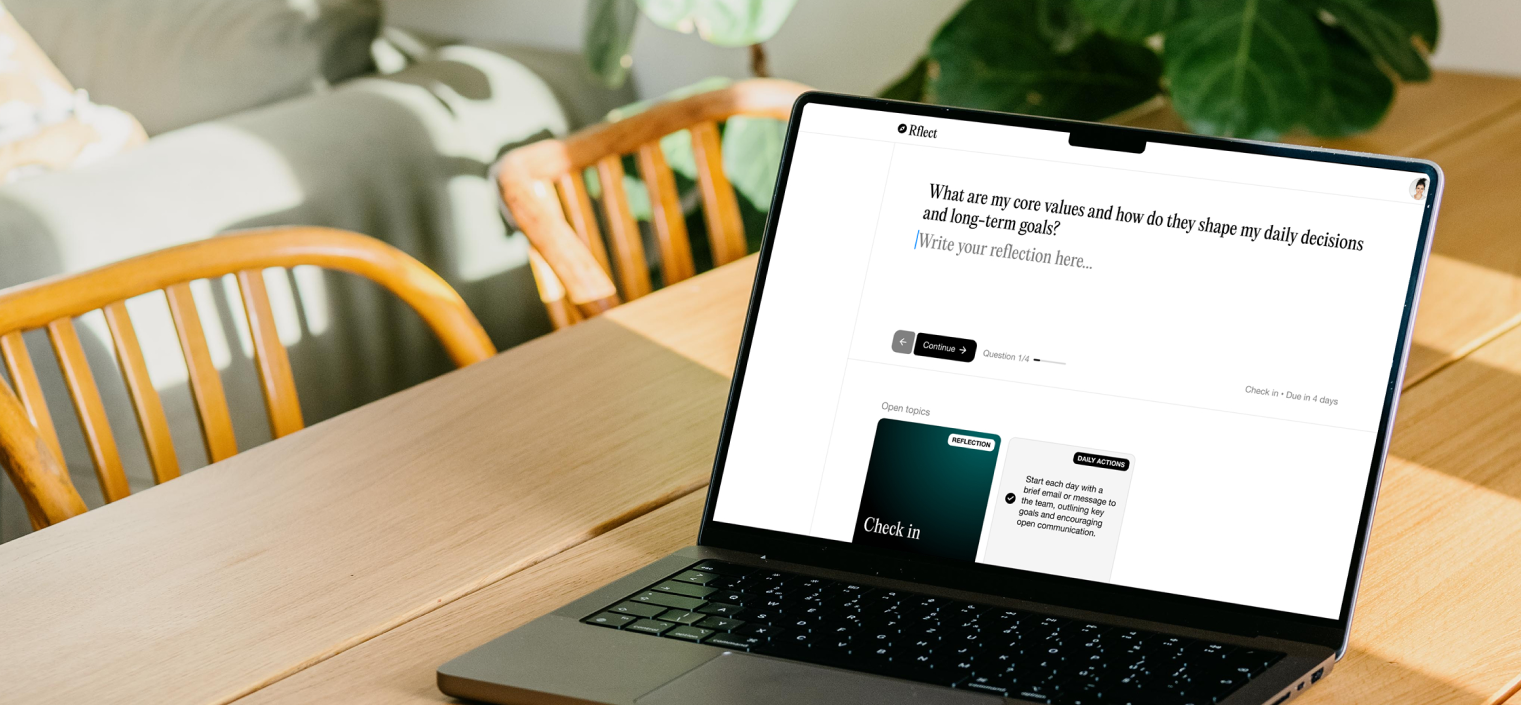
*Many students told me they weren’t used to reflecting, and now they’re more inclined to do so, even beyond their studies. That, to me, is very precious. Knowing they now have this tool, and the space to reflect in general in their life is just as valuable as the insight we both get from its application within the program.*
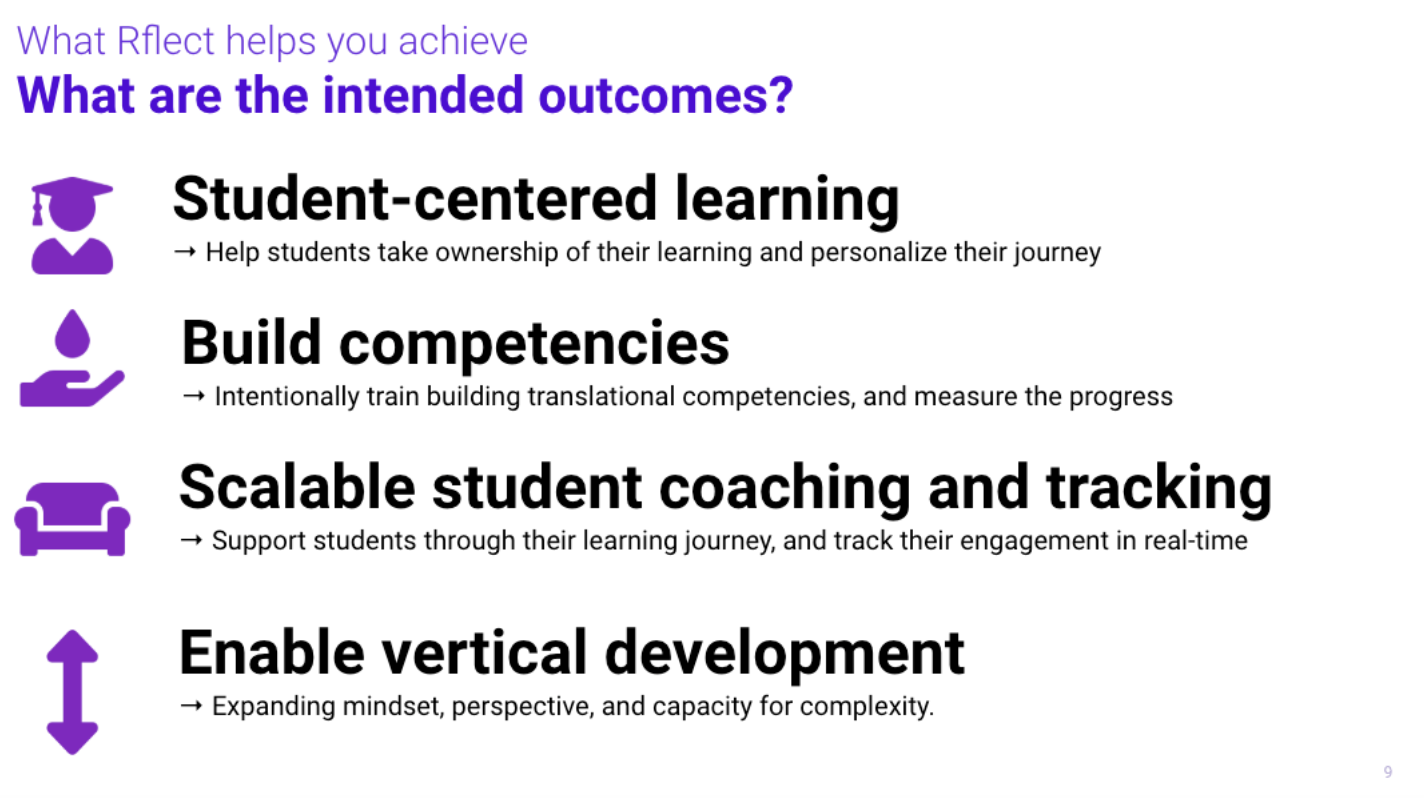
*This is our second year using Rflect so we’ve been able to make adjustments that proved extremely beneficial from last year, bolstering participation to over 95%. First, reflection is not mandatory but gets students five extra points if they fill at least 75% of the entries. Second, we’ve reduced the number of questions. Third, when possible, I like to give students some time to reflect after our class, maybe in the last 20 minutes of the last lecture of the week.*
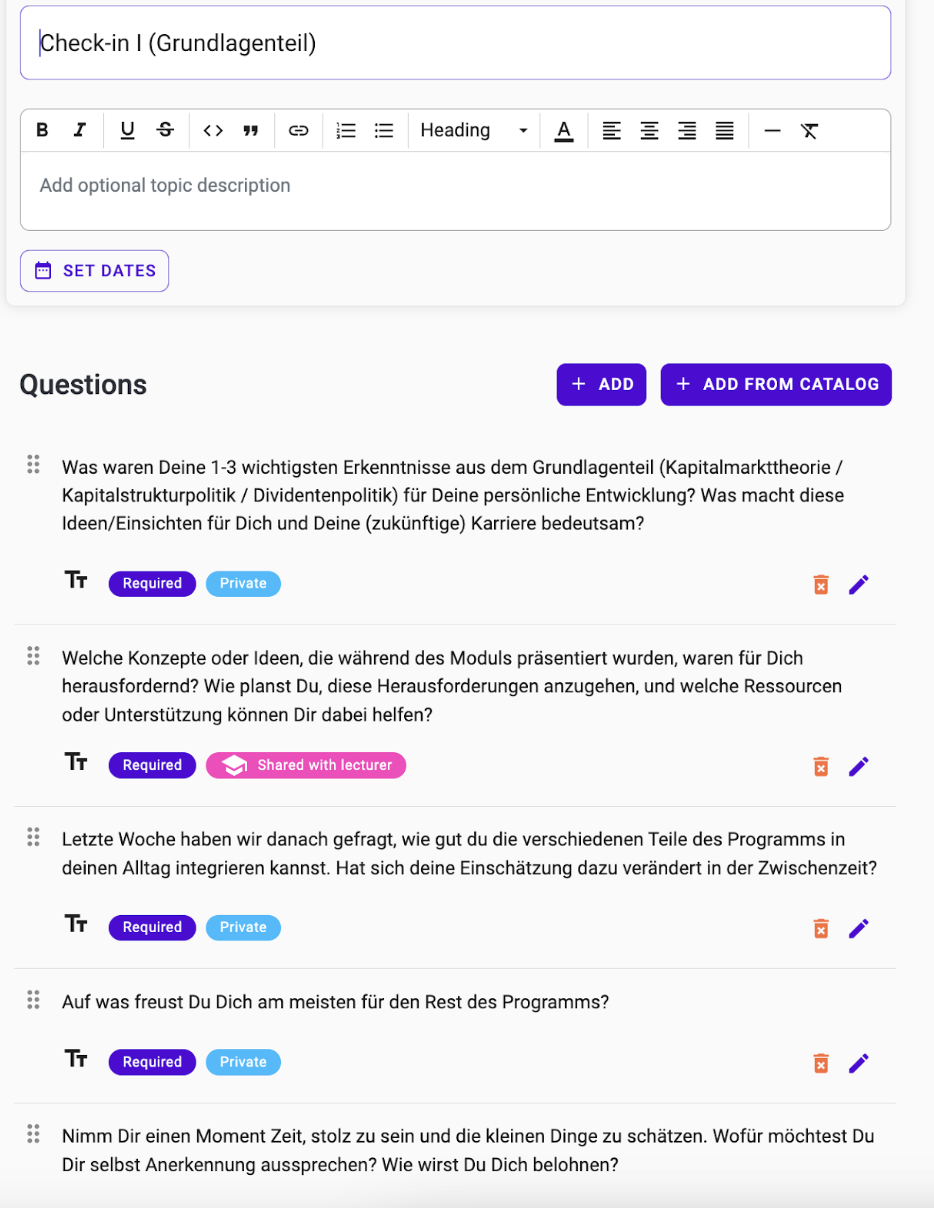
Because we weren’t formally doing reflection before this, I cannot speak of Rflect being a time-saving tool for me. I’ve actually added work to my schedule. What I can say, though, is that it’s absolutely worth it. And it’s efficient too. If I were to gather all the information Rflect now gives me access to in a matter of minutes, it’d take me hours of interviews and meetings. Instead, it is all there, for me to access anywhere, anytime, so I can react to these insights and adjust accordingly.
Key Outcomes for Each User Group
According to Beat Affolter, here is the hopeful outcome of using Rflect for students, lecturers, and institutions.
Students
Rflect helps students make the most of their program, getting precious insights they wouldn’t otherwise access.
Lecturers
As a lecturer, my mission is to help students make the most of their program. So, when they reach that goal, I’ve also reached mine.
Universities
It helps universities achieve their goal of empowering people and helping them take on responsibilities in the real world.
Conclusion
The CAS at ZHAW is not an isolated example of how Rflect is helping students, lecturers, and universities get more out of their programs. If you haven’t yet, read our case study articles about the University of St. Gallen’s Capstone Project and Rflect’s Program-Wide Application at BFH.
Getting started with Rflect is straightforward, and really does help educators design impactful reflection activities that align with their course goals. You can also read our step-by-step guide on how to integrate Rflect into your program seamlessly.
If you - or anyone you know - believe your students should have a companion for their personal development as part of their studies, please get in touch with us at info@rflect.ch.
